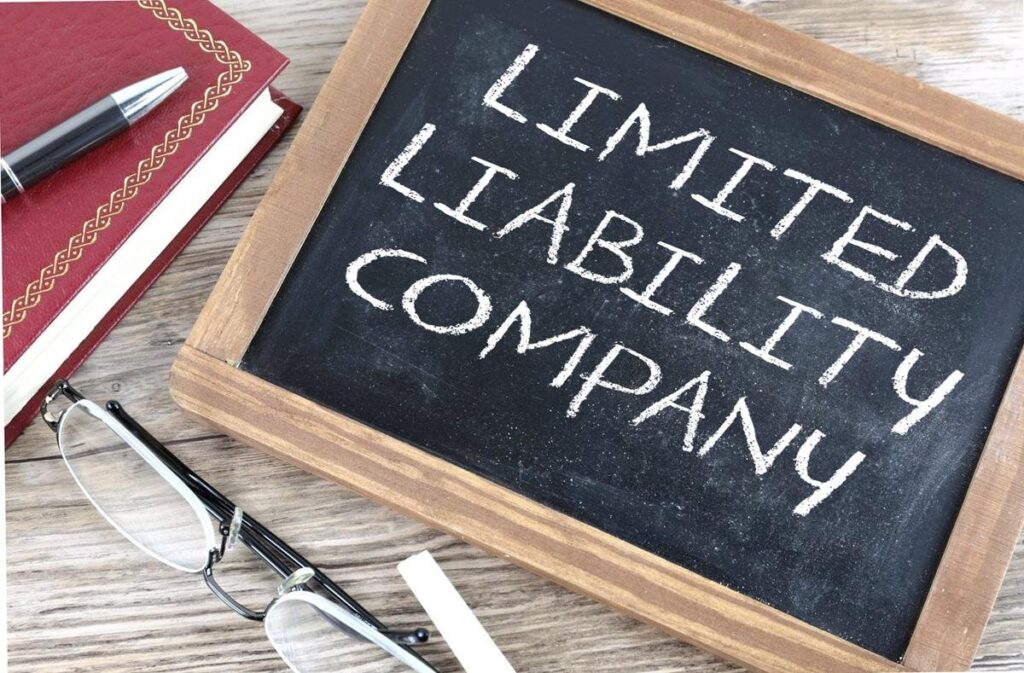An LLC company has many advantages, including liability protection, management flexibility, and ease of setup and maintenance. However, you can’t open an LLC company without knowing its meaning and how to go about it.
This article will explore the meaning of a limited liability company. The benefits and how to set them up.
What Is A Limited Liability Company?
An LLC Company, or Limited Liability Company, is a business structure that combines the liability protection of a corporation with the tax benefits of a partnership. LLCs are popular for small businesses because they offer flexibility and simplicity.
Owners of an LLC Company are called members, and they can be individuals, corporations, or other LLCs. LLCs are formed by filing articles of organization with the state government and obtaining an operating agreement, which outlines the rules and regulations for the company.
The members of an LLC are not personally liable for the company’s debts or liabilities, which means that their personal assets, such as their homes or savings, are protected in the event that the LLC is sued or goes bankrupt.
What Are The Benefits Of A Limited Liability Company?

An LLC company offers corporate protections and securities, but that’s not all. Below are the reasons to set up an LLC.
Limited liability protection
LLCs protect their owners (called “members”) from personal liability for business debts and legal claims. This means that if the LLC company is sued or goes bankrupt, the members’ personal assets (such as their homes, cars, and bank accounts) are generally not at risk. Only the assets of the LLC are at risk in such situations.
Tax benefits
LLCs are “pass-through” tax entities, meaning the LLC company does not pay taxes on its income. Instead, the profits and losses of the LLC “pass-through” to the individual members, who report their share of the LLC’s income or loss on their personal tax returns.
This can be a tax advantage for LLCs with only a few members, as it avoids the double taxation that corporations can face (i.e., taxes on corporate profits and then again on dividends paid to shareholders). LLCs can choose how they want to be taxed.
They can be taxed as a partnership, which means that the profits and losses of the business pass through to the individual members and are reported on their personal tax returns. This can be beneficial because it allows the members to take advantage of lower tax rates for business income.
LLCs can also be taxed as a corporation, benefiting businesses that expect to make a lot of profit. Alternatively, an LLC company can be taxed as an “S corporation,” which can offer some of the tax benefits of both a partnership and a corporation.
Flexibility
A limited liability company have flexibility in terms of management and structure. Members can choose how they want to run the LLC company (e.g., by themselves, with a board of directors, or with a manager) and customize their membership terms through an operating agreement.
LLCs have the flexibility to structure their internal operations in a way that works best for their business. They can have multiple members and decide how profits and losses will be distributed among them. This can be helpful for businesses with multiple owners who want control over how profits are distributed.
Ease of set up and maintenance
Forming an LLC company is typically easier and less expensive than starting a corporation. In most states, it just requires filing articles of organization and an operating agreement with the state government and paying a fee. LLCs also have fewer ongoing compliance requirements than corporations, such as holding annual shareholder meetings and keeping minutes of those meetings.
Professional image
The LLC company designation can add credibility and a professional image for some businesses, particularly those that deal with clients or customers.
Forming an LLC company can give your business a professional image, which can be beneficial when it comes to attracting customers and investors. Customers may perceive LLCs as more established and trustworthy than sole proprietorships or partnerships.
How Do I Set Up An LLC Company?

Below are the steps to set up an LLC company:
Choose a name for your LLC
The name of your LLC company should be unique and not be similar to any other business registered in your state. It is a good idea to check with your state’s Secretary of State website to ensure your chosen name is available.
When choosing a name for your LLC, here are a few things to consider:
- Make sure the name is available: You’ll need to check with your state’s LLC filing office to see if the name you want is available.
- Keep it simple: Choose a name that is easy to spell and pronounce.
- Make it memorable: Choose a unique and memorable name, so it will be easier for people to remember your business.
- Avoid using restricted words: Some states restrict using certain words in business names, such as “bank” or “attorney.” Be sure to check the guidelines for your state.
- Consider adding a keyword: If your business is focused on a particular product or service, consider including a keyword related to your business in the name.
Overall, the most important thing is to choose a name that reflects your business and is easy for people to remember and associate with your company.
Choose a registered agent
A registered agent, also known as a statutory agent or resident agent, is a person or business entity that is designated to receive legal documents on behalf of your LLC company. Choosing a registered agent carefully is important, as this person or entity will play a crucial role in your LLC’s compliance with state laws. Here are some things to consider when choosing a registered agent:
- Availability: The registered agent should be available during normal business hours to accept legal documents.
- Reliability: The registered agent should be reliable and able to forward important documents to you in a timely manner.
- Professionalism: The registered agent should be professional and able to handle sensitive legal documents with discretion.
- Location: The registered agent should be located in the same state as your LLC.
- Cost: Consider the cost of using a registered agent service, as fees can vary.
You have several options for choosing a registered agent, including using an individual within your LLC company, hiring a professional registered agent service, or using a trusted friend or family member. It’s important to carefully consider your options and choose a registered agent that will best serve the needs of your LLC.
File articles of organization
To form an LLC company, you must file articles of organization with the appropriate state agency, usually the Secretary of State’s office. The process for filing articles of organization varies by state, but generally, you will need to:
- Choose a business name: Your LLC’s name must be distinguishable from the names of other businesses registered in your state. You may need to conduct a name search to ensure that your desired name is available.
- Prepare articles of organization: You will need to draft articles of organization, which are formal document that outlines the basic information about your LLC. This typically includes the LLC’s name, the LLC’s purpose, the names and addresses of the LLC’s organizers, and any other information required by your state.
- File the articles of organization: Submit the completed articles of organization to the appropriate state agency, along with the required filing fee.
- Obtain an EIN: Obtain an Employer Identification Number (EIN) from the IRS, which is a unique nine-digit number assigned to your LLC company for tax purposes.
- Comply with other state requirements: Depending on your state, you may need to complete additional steps, such as publishing notice of your LLC’s formation in a local newspaper or obtaining any necessary licenses or permits.
It’s important to carefully follow your state’s specific requirements when forming an LLC, as failure to do so can result in delays or additional fees. You may want to consider hiring a lawyer or using an online formation service to help you with the process.
Create an operating agreement
An operating agreement is a document that outlines the rules and regulations for your LLC. It should include information about how profits and losses will be distributed among the members, how the LLC company will be managed, and what will happen if a member leaves the LLC.
Obtain any necessary licenses and permits
Depending on your business’s nature and location, you may need to obtain licenses and permits to operate legally.
Register for state taxes
It depends on the state where you are forming your limited liability company and whether you will be doing business there. Some states require LLCs to register for state taxes, while others do not. Additionally, even if your state does not require LLCs to register for state taxes, you may still be required to pay state taxes if you are doing business in that state. It is good to check with your state’s tax authority to determine your tax obligations as an LLC company.
Register for federal taxes
If you have employees, you must obtain an Employer Identification Number (EIN) from the IRS to pay payroll taxes.
Are There Disadvantages to LLC Company?

There are a few disadvantages to using an LLC company as your business entity:
- Personal responsibility protection has exceptions, such as situations of fraud or corporate misbehaviour.
- While corporation taxes are frequently avoided, you may be required to pay self-employment taxes.
- Transferring ownership may be more complicated than other options, such as C corporations with unlimited stockholders.
Business owners who are unclear about the business structure may benefit from legal counsel from a small business lawyer or tax professional.
What Are The Other Types Of Companies?
There are several types of business structures that a company can choose from, each with its own advantages and disadvantages. Some common types of business structures include:
- Sole proprietorship: A single individual owns and operates this business. It is the simplest and most common type of business structure.
- Partnership: This is a business owned and operated by two or more individuals. Partnerships can be either general partnerships or limited partnerships.
- Corporation: This is a legal entity that is separate and distinct from its owners. Corporations can be either for-profit or non-profit.
- Limited liability company (LLC): This hybrid business structure combines corporation and partnership elements. Owners of an LLC company are called members.
- Cooperative: This is a business owned and operated by a group of individuals for their mutual benefit. Co-ops are often structured as corporations or LLCs.
It’s important to choose the right business structure for your company based on your needs and goals. An attorney or a business advisor can help you understand and choose the best options.
Conclusion
In conclusion, a limited liability company (LLC) is a popular business structure that offers many benefits. LLCs provide the personal asset protection of a corporation while still allowing for pass-through taxation like a partnership or sole proprietorship.
This flexibility makes the LLC an attractive option for many small business owners. Additionally, setting up an LLC company is a relatively simple process that can be accomplished with the help of a lawyer or online formation service.
Overall, LLCs are a great choice for anyone looking to start a business or restructure an existing one.





